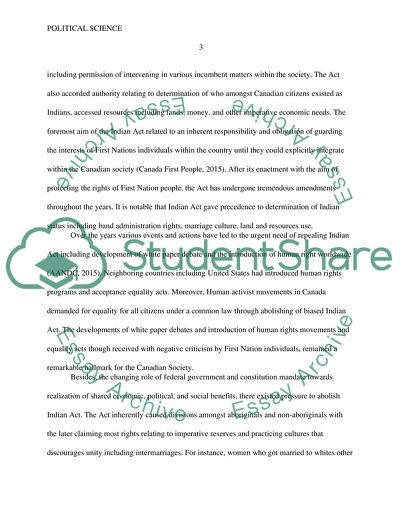Cite this document
(Should the Government of Canada Abolish the Indian Act Report Example | Topics and Well Written Essays - 1750 words, n.d.)
Should the Government of Canada Abolish the Indian Act Report Example | Topics and Well Written Essays - 1750 words. https://studentshare.org/politics/1865080-should-the-government-of-canada-abolish-the-indian-act-policy-recommendation-essay
Should the Government of Canada Abolish the Indian Act Report Example | Topics and Well Written Essays - 1750 words. https://studentshare.org/politics/1865080-should-the-government-of-canada-abolish-the-indian-act-policy-recommendation-essay
(Should the Government of Canada Abolish the Indian Act Report Example | Topics and Well Written Essays - 1750 Words)
Should the Government of Canada Abolish the Indian Act Report Example | Topics and Well Written Essays - 1750 Words. https://studentshare.org/politics/1865080-should-the-government-of-canada-abolish-the-indian-act-policy-recommendation-essay.
Should the Government of Canada Abolish the Indian Act Report Example | Topics and Well Written Essays - 1750 Words. https://studentshare.org/politics/1865080-should-the-government-of-canada-abolish-the-indian-act-policy-recommendation-essay.
“Should the Government of Canada Abolish the Indian Act Report Example | Topics and Well Written Essays - 1750 Words”. https://studentshare.org/politics/1865080-should-the-government-of-canada-abolish-the-indian-act-policy-recommendation-essay.


